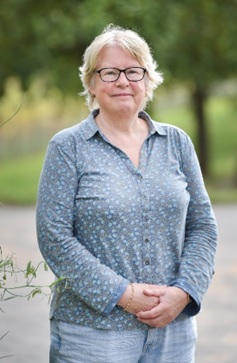
Department of Plant-Microbe Interactions
Max-Planck Institute for Plant Breeding Research
Cologne, Germany
Professor Jane Parker is internationally recognized for her research on plant immunity. Her main interest is to understand how plants and pathogenic microbes communicate and mechanisms plants have evolved to effectively combat disease. She received her PhD at The University of Wales, Swansea UK in 1987. Since 2001 Parker has been a Senior Research Group Leader at The Max-Planck Institute for Plant Breeding Research in Cologne, Germany. Parker has made leading contributions to identifying and characterizing genetic and biochemical pathways which regulate immune responses in seed plants. She has contributed to the recent discovery of plant nucleotide-based immune second messengers and their modes of action in host disease resistance and cell death. These findings have significance for fundamental plant biology and modern agriculture.
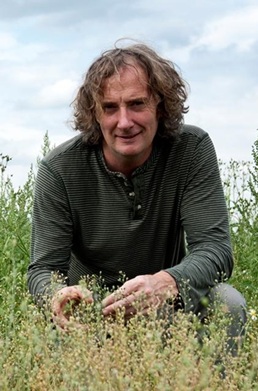
Johnathan A. Napier
Rothamsted Research
Harpenden, England
Professor Jonathan A. Napier is a Science Director at Rothamsted Research. Originally from County Down, Northern Ireland, Johnathan obtained his BSc in Agricultural Sciences from the University of Nottingham, followed by a PhD in plant biochemistry from King’s College, London. He carried out post-doctoral research at the University of Cambridge, then taking up a position at Long Ashton Research Station in Bristol. His research group relocated to Rothamsted Research in 2003 where he is currently Science Director. Johnathan is also an Affiliated Lecturer at the University of Cambridge and Honorary Professor at the Institute of Aquaculture, University of Stirling. He has published over 200 peer-reviewed papers and is the inventor on multiple granted patents relating to the biotechnology of plant oils. He was awarded his DSc from the University of Nottingham in 2006 for outstanding contributions to the field of plant lipid research. He is passionate about the importance of public engagement in gaining social license for new technologies and is a regular contributor to discussions about GM food and agriculture. Johnathan is currently Editor-in-Chief of Plant Biotechnology Journal.
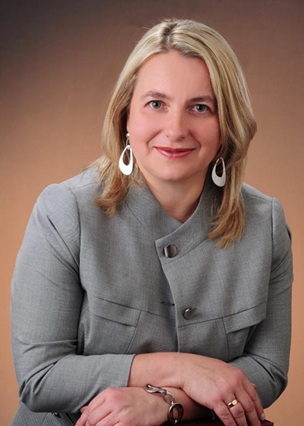
Magdalena Frąc
Institute of Agrophysics
Polish Academy of Sciences
Lublin, Poland
Magdalena Frąc is the Professor in agricultural sciences at the Institute of Agrophysics, Polish Academy of Sciences in Lublin, Poland. She is the Head of Department of Soil and Plant System and Supervisor of her Laboratory of Molecular and Environmental Microbiology, which organised. She set up and is chair-holder of the Molecular and Environmental Microbiology group with >15 years of experience in research in microbial activity and biochemical properties, including microbiomes in agroecosystems, functional and genetic diversity of soil microbial communities. She is also focused on agricultural organic production of healthy food, waste utilization and valorization, bioproducts and biofertilizers for agroecology, microbial indicators of soil quality and microbiological markers of ecological soil status as well as soil, plant and food health. Her interests concern plant-soil-microbiome interactions, plant holobiont concept, and biotechnological solutions for diagnostics, control and monitoring of key pathogens in sustainable agriculture. Soil mycology, phytopathogenic fungi and heat-resistant fungi are also of her interest. Other relevant experiences include coordination and implementation of national (NCN, NCBR, MNSzW) and international (Horizon Europe, H2020, EJP SOIL, ERA-NET SusCrop, Eastern Poland Programme) research and infrastructure projects (~10 Mio €).
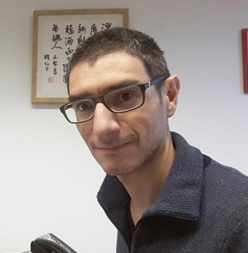
Alessio Mengoni
Department of Biology
University of Florence
Florence, Italy
Alessio Mengoni is a professor of genetics in the Department of Biology at the University of Florence, Italy. He graduated in biology and obtained a PhD in genetics from the University of Pavia, Italy, in 2000. During his PhD, he worked on the evolutionary genetics of plants, then shifted his focus to studying microbial communities. He also conducted research at SCK-CEN in Belgium and at the Vrije Universiteit in Amsterdam. He has been a visiting professor at the universities of Gdansk in Poland and Guangzhou (Sun Yat-sen University) in China, where he taught courses in genomics and systems biology.
His main research interests revolve around studying bacterial genome evolution, especially concerning plant-microorganism interactions and symbiosis, for designing applications in agricultural and environmental biotechnology.
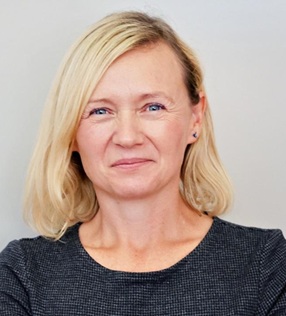
Agnieszka Zienkiewicz
Centre for Modern Interdisciplinary Technologies
Nicolaus Copernicus University
Toruń, Poland
Dr hab. Agnieszka Zienkiewicz, prof. UMK is an Associate Professor and group leader at the Centre for Modern Interdisciplinary Technologies of Nicolaus Copernicus University in Toruń. In 2002, she completed her master’s degree in biology, and in 2007, she obtained her PhD from the then Faculty of Biology and Earth Sciences at UMK (now the Faculty of Biological and Veterinary Sciences). From 2008 to 2014 she worked as postdoctoral fellow at the Estación Experimental del Zaidín (EEZ) Institute in Granada, which is part of the Consejo Superior de Investigaciones Científicas (CSIC) network in Spain. In 2014 she moved to the Michigan State University (East Lansing, USA) and she joined the group of Prof. Christopher Benning. From 2016 to 2020, she continued her research at the University of Göttingen (Germany) in the Department of Plant Biochemistry, led by Prof. Ivo Feussner.
Currently, as the principal investigator of two research grants funded by the National Science Centre (OPUS 18 and Sonata Bis 9), she conducts studies on lipid metabolism in the cells of higher plants.
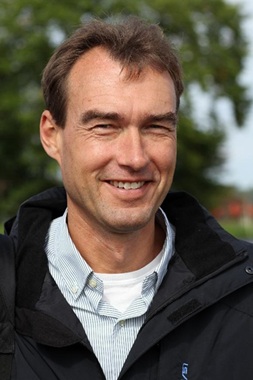
Per Hofvander
Department of Plant Breeding
Swedish University of Agricultural Sciences
Alnarp, Sweden
Per Hofvander is an Associate Professor, Division Manager and Subject Leader Plant Biotechnology at the Department of Plant Breeding at the Swedish University of Agricultural Sciences (SLU). His research spans both basic and applied plant biotechnology, integrating academic and industry experience. He focuses on the genetic regulation of transitions from vegetative to reproductive and storage organ development including the molecular biology and biochemistry of storage products as starch, oil and protein, as well as the advancement of gene editing technologies. One of the areas of his work is the regulation of storage compound accumulation in sink tissues such as seeds and tubers, aiming to uncover genetic circuits and motifs that control the formation of our major food components. He also investigates how genetic and environmental interactions affect tuberization and sink development in potato, with the goal of improving potato cultivation under long-days and/or heat stress. His research further explores the starch biosynthesis in potato to develop novel starch qualities for industrial and food applications. He also works on optimizing plant architecture and breeding strategies for faba bean. He is also involved in the production of insect pheromone precursors and wax esters as part of the oil in seeds of Camelina sativa, contributing to the development of environmentally friendly pest management strategies.
His research has contributed to the formation of two plant biotech companies and resulted in ten patent applications. In addition to research, he teaches and supervises undergraduate, graduate, and PhD students in molecular biology, metabolism, bioinformatics, and regulatory frameworks for plant breeding.
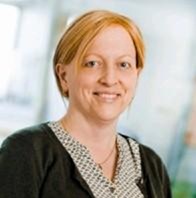
Agnieszka Nielsen
Traitomic, Carlsberg Group
University of Copenhagen
Copenhagen, Dennmark
My main drive is to facilitate and build research driven biosolutions with interdisciplinary partnerships in the plant and food sector. I combine experience from scientific research from university of Copenhagen and commercial innovation consultancy. Lately, I specialize in inter-disciplinary collaborations and translate research into impact.
I experienced linking innovation between industry with academic research in the agri-food biotechnology sector working in a Carlsberg group spin out company. I focus on plant-based foods, health enhancers but also new breeding tools for crops and microbes in the agri-food industry and research sectors.
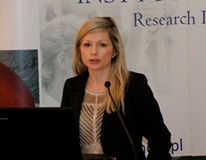
Monika Kałużna
Department of Plant Pathology
The National Institute of Horticultural Research
Skierniewice, Poland
Monika Kałużna is a researcher in Plant Pathology Department of The National Institute of Horticultural Research, Skierniewice, Poland. She has completed her PhD in 2014. During her PhD she worked on phenotypic and genotypic characterization of Pseudomonas syringae pathovars causing bacterial canker of stone fruit trees. Then extended her work to include bacteria of Xanthomonas genus and based on the results obtained in 2024 she did habilatation on biological diversity of the most harmful pathogenic bacteria for fruit plants.
Her main research activities are concentrated on bacterial diseases of fruit plants, ornamental plants and vegetables studying etiology and epidemiology of the diseases, molecular biology of pathogens, bacterial taxonomy including development of methods for their detection and description of the new taxa.
She has published over 30 publications in journals with IF, over 70 presentations on international and national conferences as well about 80 other scientific articles.
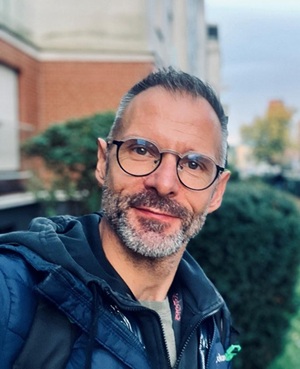
Krzysztof Zienkiewicz
Centre for Modern Interdisciplinary Technologies
Nicolaus Copernicus University
Toruń, Poland
Dr hab. Krzysztof Zienkiewicz, prof. UMK is an Associate Professor at the Centre for Modern Interdisciplinary Technologies of Nicolaus Copernicus University in Toruń. In 2002 he obtained Master Degree in biological sciences and in 2006 he was awarded a PhD at the then faculty of Biology and Earth Sciences of Nicolaus Copernicus University in Toruń (currently the Faculty of Biology and Veterinary Sciences). In 2008-2014 he completed his first of the three long-term postdoctoral internships at the Estación Experimental del Zaidín (EEZ) institute in Granada, which belongs to Spanish network of Consejo Superior de Investigaciones Científicas (CSIC). From 2014 to 2016, as a beneficiary of the Marie Skłodowska-Curie fellowship, he completed two long-term scientific internships – the first, two year-long, at the Michigan State University (East Lansing, USA) in the group of prof. Christoph Benning, and the second one, one year-long, at the University of Göttingen (Germany) in the Department of Plant Biochemistry, headed by prof. Ivo Feussner. He continued his scientific work at this prestigious university until 2020, when he returned to his alma mater in Toruń, where he continues research on lipid metabolism in microalgae cells with a high potential for biofuel production.
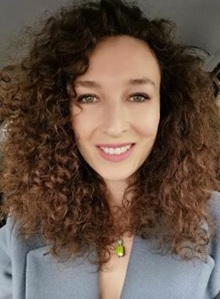
Oana Dima
VIB-Ghent University Center for Plant Systems Biology
Ghent, Belgium
Oana Dima is Science Policy Manager at VIB-Ghent University Center for Plant Systems Biology. In her daily work, she shapes the European and international policies related to crop improvement using new plant breeding techniques including genome editing. In addition, she coordinates the activities of the European Sustainable Agriculture through Genome Editing (EU-SAGE) network, which consists of over 150 research institutes and associations across Europe.
Oana Dima is passionate to facilitate open dialogues on the latest technological advancements in plant sciences and to contribute to the policy environment through consultation, education and discussion on the European level. During her PhD in Belgium in the frame of the Stanford’s University Global Climate and Energy Project, she researched the lignification process in the context of biofuel production. Currently, as Science Policy Manager at VIB-UGent and Managing Director of EU-SAGE, she facilitates shaping policies to enable genome editing in plants for the transition to sustainable agriculture in Europe.
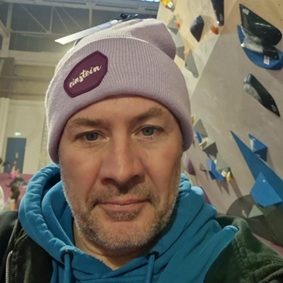
Arthur Korte
Center for Computational and Theoretical Biology
University of Würzburg
Würzburg, Germany
Arthur Korte is a German plant biologist specializing in molecular and evolutionary genomics. He earned his PhD in Botany from TU Munich in 2009 before conducting postdoctoral research at the Gregor-Mendel Institute in Vienna. His expertise lies in computational and theoretical biology, with a particular focus on plant adaptation. From 2015 to 2021, he was a Junior Professor of Evolutionary Genomics at the University of Würzburg and has since held interim professorships in plant ecophysiology. His research in basic plant biology and quantitative genetics has earned widespread recognition. He has published over 50 papers, accumulating more than 10,000 citations, with an h-index of 32. In 2022, he obtained a Venia Legendi in Computational and Theoretical Biology. Currently, he serves as an interim professor of Molecular Plant Biology at the University of Würzburg. Outside academia, he lives in Frankfurt, Germany, and enjoys rock climbing.
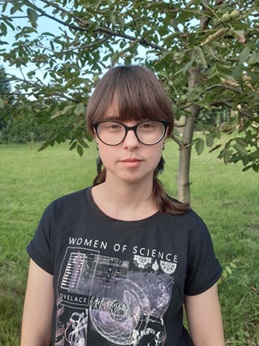
Magdalena Miklaszewska
Center for Biotechnology
Bielefeld University
Bielefeld, Germany
Dr. Magdalena Miklaszewska is a Marie Skłodowska-Curie Postdoctoral Fellow at the Center for Biotechnology (CeBiTec), Bielefeld University (Germany), where she explores the potential of oleaginous microalgae for wax ester production. She also holds a position as an Assistant Professor at the Department of Plant Physiology and Biotechnology, Faculty of Biology, University of Gdansk (Poland).
Magdalena obtained her PhD in Biochemistry in 2015 from the Intercollegiate Faculty of Biotechnology UG-MUG. From 2018 to 2020, she was a Visiting Postdoctoral Researcher at the Department of Plant Biochemistry, University of Göttingen, supported by the Polish Ministry of Science and Higher Education through the Mobility Plus Program. During this time, she worked under the supervision of Prof. Ivo Feussner and Prof. Agnieszka Zienkiewicz. She also received several international scholarships, including a DAAD Fellowship and a French Embassy Scholarship supporting a scientific stay at the Laboratory of Membrane Biogenesis, CNRS/Bordeaux University (France). Between 2021 and 2024, she held a Postdoctoral Fellowship within the REWIRE (REinforcing Women In REsearch) Programme at the University of Vienna.
Her research focuses on lipid metabolism and metabolic engineering of photosynthetic organisms, with a particular interest in the production of industrially valuable lipids in microalgae and plants through synthetic biology approaches.
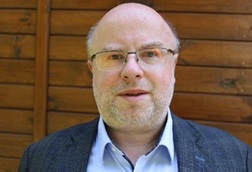
Tomasz Sarnowski
Institute of Biochemistry and Biophysics
Polish Academy of Sciences
Warszawa, Poland
Since 1998, Prof. Tomasz J. Sarnowski has been associated with the Institute of Biochemistry and Biophysics of the Polish Academy of Sciences (IBB PAS), where he completed his doctoral dissertation. In January 2021, he became the head of the Laboratory of the Regulation of Gene Expression at IBB PAS. From 2008 to 2010, he conducted a postdoctoral fellowship under the prestigious Marie-Curie Intra-European Fellowship at the Max Planck Institute in Cologne, where he holds the status of a guest scientist. In 2010, Prof. Sarnowski was awarded the Marie-Curie Re-Integration grant (FP7), a highly competitive and prestigious honor.
Prof. Sarnowski is the author of numerous publications in the fields of molecular biology, genetics, and oncology. He promotes the use of various model systems, including Arabidopsis, shrimp, and human cell lines, to better understand the processes disturbed in cancer diseases, particularly those related to epigenetics. His current research focuses on deciphering the molecular mechanisms underlying the development and progression of clear cell renal cell carcinoma, advanced bladder cancer, and salivary gland adenoid cystic carcinoma.
Together with his team and collaborators, Prof. Sarnowski has demonstrated that membrane kinase receptors, such as ERECTA in Arabidopsis and HER2 in humans, can migrate to the nucleus and interact with SWI/SNF chromatin remodeling complexes, thereby influencing gene expression regulation.
Prof. Sarnowski’s research group collaborates extensively with both domestic and international institutions, including the University of Leeds, the National Cancer Institute, two Max Planck Institutes in Germany, and Mahidol University in Thailand. Since 2003, he has maintained a close collaboration with the Maria Sklodowska-Curie National Research Institute of Oncology.
Prof. Sarnowski has been awarded a research grant from the Polpharma Scientific Foundation, enabling his investigation into the molecular basis of renal cancer. He also served as the IBB PAS coordinator for the prestigious Polish Medical Agency grant awarded to the Maria Sklodowska-Curie National Research Institute of Oncology. Additionally, he was a participant in the Horizon Europe-funded international ISIDORe project, which aims to establish a rapid network for combating SARS-CoV-2 variants and other pandemic-prone pathogens. Currently, he is the IBB PAS coordinator in two projects financed in frame of EU4Health program- JANE2- aiming in combating cancer and Jade Health- for improving treatments of dementia.
Throughout his career, Prof. Sarnowski has received numerous accolades, including scientific prizes from the Polish Society of Clinical Oncology, the European Society for Medical Oncology (ESMO), and the Scientific Council of IBB PAS. Furthermore, his protein purification technology was awarded promotion in the EU Technology Marketplace.
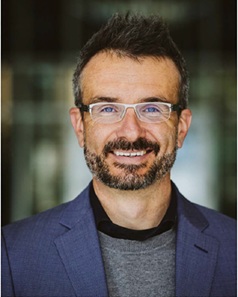
Daniel Mertens
Clinic of Internal Medicine
Ulm University
Schiller & Mertens
Ulm, Germany
Prof. Dr. rer. nat. Daniel Mertens heads two research groups, one group at the German Cancer Research Centre (DKFZ) in Heidelberg and a research group at the University Hospital Ulm. As a scientist, Daniel Mertens is the author of 101 publications that have been cited 5753 times by colleagues (https://www.webofscience.com/wos/author/record/1318302). He has received € 6.77 million in grants from external third-party funders for his research and coordinated international research networks (cancerepisys.org and leukemia-resistance.de). Since 2011, he has been training scientists, physicians, administrators and staff in transferable skills (www.scientistsneedmore.de). So far, >9000 participants took part in international workshops in Europe, USA and Africa. Since 2023 he empowered 5754 participants in 126 workshops to apply AI tools in their everyday lives. After the workshops, 80.4% of participants said they will make implementation of artificial intelligence a top priority.
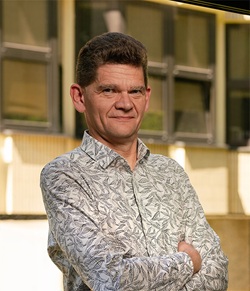
Paweł Bednarek
Institute of Bioorganic Chemistry
Polish Academy of Sciences
Poznań, Poland
Professor Paweł Bednarek is group leader at the Institute of Bioorganic Chemistry, Polish Academy of Sciences in Poznań, Poland. He received his PhD at the same institution in 2001 and carried out post-doctoral research at the Max Planck Institute for Plant Breeding Research in Cologne, Germany. Pawel’s scientific interest focuses on the function of plant specialized metabolites in plant-microbe interactions. This includes metabolomic investigation of plant response to microbial colonization, identification of enzymatic and regulatory components of the corresponding metabolic pathways and functional characterization of the respective end products. His research focuses mainly on tryptophan-derived metabolites known as indole glucosinolates and indole phytoalexins that appeared to be indispensable for proper immune responses in the model plant Arabidopsis thaliana and other Brassicaceae species. In addition to the functional characterization these metabolic pathways, he is also interested in their evolution in the context of plant-pathogen arms race.